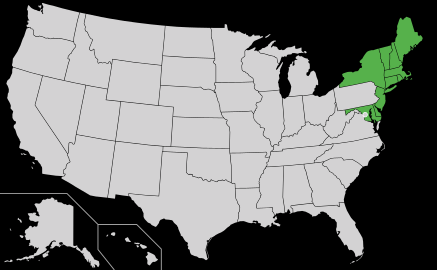Philadelphia, The Grassroots Anti-Fracking Movement’s New Old Front
September 29, 2013Radioactive Wastewater From Fracking Found in PA Stream
October 4, 2013“The emergence of the global warming problem creates an imperative for action that cannot be ignored.” – The Environmental and Energy Study Institute’s Board of Directors’ unanimous statement, 1988.
September 27, 2013—In the past quarter century, the case for action on climate change has become ever more pressing, and the latest report by the Intergovernmental Panel on Climate Change (IPCC), a scientific body under the auspices of the United Nations, adds yet more urgency. The IPCC, first set up in 1990, has become the world’s leading scientific authority on climate change.
“It is time to wean ourselves off fossil fuels. It is time to match our policies and our actions to what science is telling us. It is time to listen to the voices of local leaders who already are facing the impacts of climate change on their vulnerable communities,” said EESI Executive Director Carol Werner, reacting to the IPCC’s release of its summary report.
The first part of the IPCC’s Fifth Assessment Report (AR5), which reviews the scientific evidence for climate change and its causes, will be released on Monday, September 30, but a summary for policymakers was made public Friday with its key conclusions. According to this summary, “Warming of the climate system is unequivocal, and since the 1950s, many of the observed changes are unprecedented over decades to millennia. The atmosphere and ocean have warmed, the amounts of snow and ice have diminished, sea level has risen, and the concentrations of greenhouse gases have increased.”
Critically, the report also concludes, “It is extremely likely [95 percent confidence] that human influence has been the dominant cause of the observed warming since the mid-20th century.” This is the strongest, most emphatic language yet used by the IPCC to describe its confidence.
In scientific terms, 95 percent confidence is akin to certainty. In fact, it is with the same level of confidence that researchers concluded that cigarette smoke has harmful health effects, after decades’ worth of medical studies.
The IPCC expects sea levels to rise 26 to 82cm (10-32 inches) by the end of the century, more than its last forecast (7-23 inches). Likewise, it predicts global average temperatures will rise between 0.3 and 4.8 degrees Celsius by 2100 (0.5-8.6 Fahrenheit). Such trends will set the stage for more extreme weather, such as heatwaves, floods and droughts.
It is important to note that these predictions are conservative. The IPCC’s hundreds of volunteer scientists from 39 countries review thousands of published papers about climate change, and then reach their conclusions based on consensus. Such consensus-seeking eliminates the more alarmist studies.
It is already too late to stop climate change: climate change is happening. But it is not too late to mitigate climate change, and to address its impacts. More than ever, EESI urges our leaders to take prompt, determined action and to reach a new global climate deal as rapidly as possible.
MORE INFORMATION
- Intergovernmental Panel on Climate Change (IPCC)
- IPCC Working Group I
- Summary of Climate Change 2013: The Physical Science Basis for policy makers
The Environmental and Energy Study Institute is an independent, non-profit organization advancing innovative policy solutions to set us on a cleaner, more secure and sustainable energy path. EESI educates policymakers, builds coalitions and develops policy in support of energy efficiency, renewable energy, sustainable biomass, sustainable buildings, and sustainable transportation. EESI was founded by a bipartisan Congressional caucus in 1984, and its strong relationship with Congress helps EESI serve as a trusted source of credible, non-partisan information on energy and environmental issues. EESI receives no congressional funding and is supported through contributions and grants.
For more information contact: Amaury Laporte at 202-662-1884 or alaporte@eesi.org



